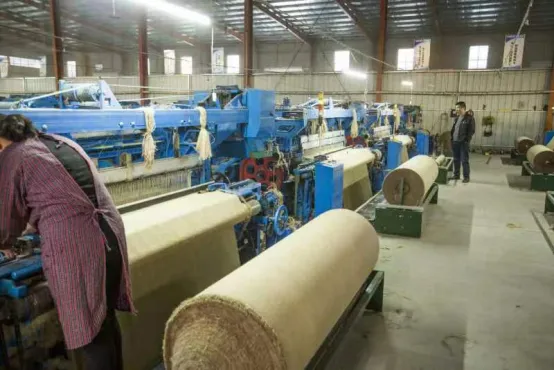Jute sack for packing cashew
The global push for environmentally friendly packaging solutions has spurred various industries into adopting more sustainable practices, and the cashew industry is no exception. A significant move within this sector is the increasing shift toward using jute sacks for packaging. Jute, a natural fiber known for its sustainability and biodegradability, stands out as a superior alternative to traditional plastic and synthetic materials. This transition is particularly noteworthy as it reflects a broader trend of industries pivoting towards eco-friendly options in response to growing environmental concerns and consumer demand for greener products.
India, one of the world's largest producers and exporters of cashews, has historically relied on plastic and polypropylene bags for packaging. However, the mounting environmental concerns regarding plastic waste and stringent governmental regulations have prompted a significant shift within the industry. The detrimental impact of plastic on the environment, given its long decomposition period and the resultant pollution, has catalyzed this change. Jute sacks, on the other hand, offer a completely biodegradable and compostable alternative, breaking down naturally without causing long-term damage to ecosystems. This critical environmental advantage has led many cashew processing plants in India and other producing countries to begin transitioning to jute sacks, setting a precedent for others to follow.
The Indian government's active role in promoting jute usage has been pivotal in accelerating this shift. By offering subsidies and various incentives, the government has encouraged manufacturers to consider and adopt jute over synthetic materials. This state support extends not only to the cashew industry but also to the jute farming sector, providing economic benefits and livelihoods for countless farmers. Nevertheless, the transition is not without its challenges. Jute sacks tend to be more expensive than plastic bags, and they also have lower moisture resistance, potentially impacting the shelf life of the cashews. Despite these hurdles, the combined efforts of industry stakeholders and ongoing technological advancements in jute processing promise to address these issues effectively. The shift toward jute sacks represents a meaningful stride toward sustainable packaging, exemplifying how industries can innovate and adapt in the face of environmental and economic pressures.
Share
-
Lithium Battery Welding Machine | High-Precision, Fast, SafeNewsNov.17,2025
-
Aluminium Guide Roller | Anodized, Lightweight, Low-NoiseNewsNov.17,2025
-
Tofu Cat Litter Bulk – Eco, Low-Dust, Fast Clumping SupplyNewsNov.17,2025
-
Equipment for Lithium Cell Assembly | Automated & PreciseNewsNov.10,2025
-
Square File Tool – Precision Cut, Hardened Steel, VersatileNewsNov.10,2025
-
Lithium Ion Battery Assembly Machine | Automated, High-SpeedNewsNov.10,2025








